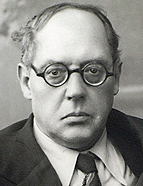

In any case, there is a certain pedagogical intention and relativism of scientific knowledge underlying Alfredo Pimenta’s work: “[...] studying and teaching what Portuguese social institutions were, without biased comments or personal subjectivity, enables us to understand the past and therefore leads us to a notion of the direction we should take in the present” (Novos Estudos Filosóficos e Críticos [New Philosophical and Critical Studies], 1935, p. 125 – emphasis added). In line with nationalist historicism, the historian from Guimarães sought to occupy the space of liberal narrative, replacing it with the “truth that serves […] the homeland and not that which can harm or diminish it” (Idem, p. 107). Moreover, in the 1940s, he would say that he did not become a historian to serve politics, but that it was history that had strengthened his political convictions (Idade Média: problemas e soluções, 1946, p. viii).
And the truth is that, in order to sustain this orientation, Alfredo Pimenta deliberately abandoned objectivity on certain occasions – or, at least, attempted to justify “his” specific objectivity, which involved, for example, the validation of providentialist traditions denied by historical science, such as Ourique. It is, in any case, interesting that he openly acknowledges this, unlike other historians of the same ideological spectrum. For example, when writing in Elementos da História de Portugal (Elements of the History of Portugal) that “had it not been for the period of anti-Catholic and anti-Portuguese liberalism that the country was going through, he would have written an exclusively scientific history that would have been a presentation of the facts and their sources without any kind of philosophical fog to inform them. However, they contain a strong dose of philosophy of history, my truth, my doctrine. It is its weak point because it is its debatable point [...]. I had to elaborate it to oppose my non-truths, which I consider harmful to my country” (Elementos de História de Portugal, 1934, p. 42).
This work is financed by national funds through FCT - Foundation for Science and Technology, I.P, in the scope of the projects UIDB/04311/2020 and UIDP/04311/2020.
